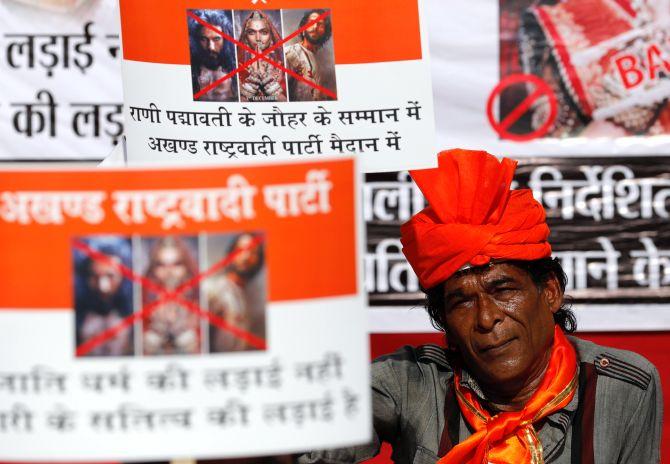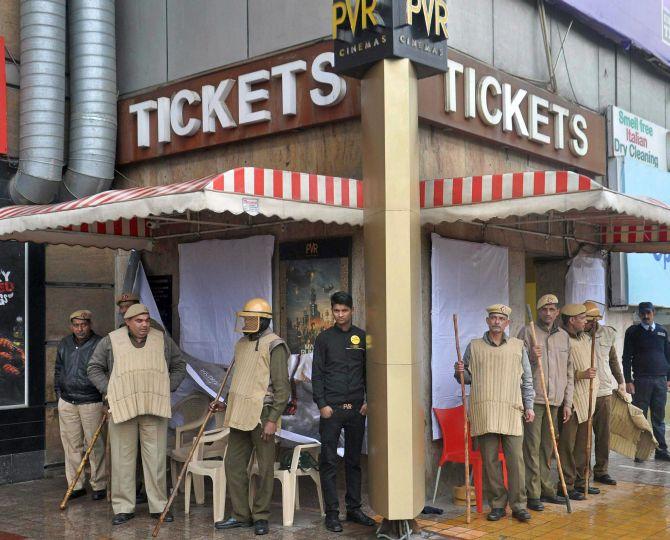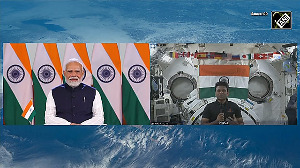The Supreme Court on Tuesday rejected the pleas filed by Rajasthan and Madhya Pradesh seeking modification of its January 18 order that had paved the way for the nationwide release of controversial film Padmaavat, and sternly warned the protestors to “abide by our order”.

“We will not modify our order. Otherwise these people who are taking to the streets, will make a virtue of creating trouble. They will first create trouble and then make a virtue of it,” the top court strongly observed.
“It is unthinkable that 100-200 people can take to the streets to ban a movie. They should better abide by our order. It is the obligation of state government to maintain law and order,” a bench of Chief Justice Dipak Misra said.
Violent protests against Sanjay Leela Bhansali’s Padmaavat have rocked states like Rajasthan, Uttar Pradesh and Madhya Pradesh in the past few days.
“Those who wish, will watch the movie, and those who don’t like, will not watch. It is up to them,” the bench said, adding “people must understand that the Supreme Court has passed an order. They must abide by it.”
The bench, which also comprised Justices A M Khanwilkar and D Y Chandrachud, also rejected all the pleas including that of Karni Sena, which has been staging protest in several states against the release of the movie, and Akhil Bharatiya Kshatriya Mahasabha, seeking to stall the movie.
It asked the states to follow its order but gave them the liberty to approach it again “if the situation arises”.
Additional Solicitor General Tushar Mehta, appearing for Madhya Pradesh, said he was not seeking a ban on the film but certain modifications to the January 18 order of the court.
The bench pointed to a paragraph in Madhya Pradesh’s petition and asked “does it mean that violence is continuing in the state after the court’s order to allow screening of movie.”
It then told the state’s counsel “You should come up with some concrete material before us.”
Mehta urged that the court should ignore that paragraph and move on to larger issues.
“How can we ignore? If the paragraph does not exist, your application also does not exist,” the court replied.

Mehta cited earlier judgments of top court and argued that states can ban the movie after it is released and not before it is released.
The bench observed that if it correctly understood the submission, then the state government wants that it should be allowed to ban a movie after it is exhibited.
The ASG said a ban can be imposed on the ground of law and order problem.
“It means that based on your apprehension of law and order problem, you should be allowed to ban a movie. It is implicit that you are incapable of ensuring law and order in state,” the bench said.
To this, the ASG replied that the state government can deal with such situation, if required, in a tough manner.
“Let the state government follow our order and if the situation arises, it can approach us. We will examine the issue then,” the bench said and observed that top court’s order has to be followed by one and all under Article 144 of the Constitution.
Counsel appearing for Shree Rashtriya Rajput Karni Sena, said the film was centred on an emotional issue and an attempt has been made to distort history.
The court said a disclaimer has been given in the film that it is not a portrayal of history.
The apex court had earlier restrained other states from issuing any ban orders on the film.
Maintaining that states were under constitutional obligation to maintain law and order, the top court had said this duty also included providing police protection to persons
involved in the film, its exhibition and the audience.
The film, starring Deepika Padukone, Shahid Kapoor and Ranveer Singh in lead roles, is based on the saga of a historic 13th century battle between Maharaja Ratan Singh and his army of Mewar and Sultan Alauddin Khilji of Delhi.









